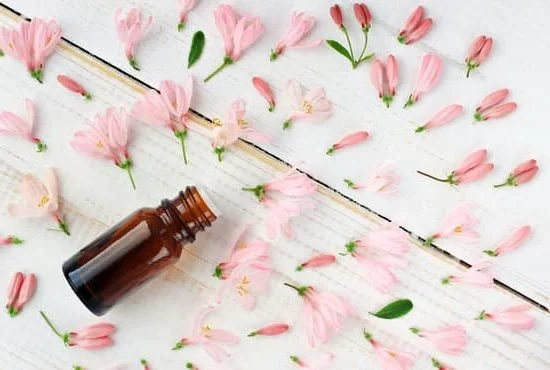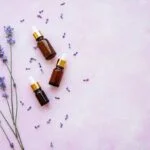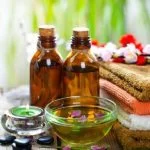
Aromatherapy has long been recognized for its soothing and therapeutic effects, particularly in relieving stress. In today’s fast-paced and demanding world, stress has become a common struggle for many individuals, affecting both their physical and mental well-being.
However, through the use of essential oils and specific aromatherapy techniques, it is possible to alleviate stress and promote relaxation. This article delves into the power of aromatherapy for stress relief, exploring the various benefits and methods that can be employed to achieve optimum results.
Stress is a prevalent issue that affects people from all walks of life. Whether it is due to work pressure, personal responsibilities, or other external factors, chronic stress can have adverse effects on both our mental and physical health. This is where the healing properties of aromatherapy come into play.
By applying certain essential oils or inhaling their fragrance, the body’s stress response can be altered, inducing a sense of calmness and tranquility. Aromatherapy works by stimulating the olfactory system in our brain, which controls emotions and can influence mood regulation.
Understanding how aromatherapy affects stress levels requires delving into the science behind it. Research has shown that essential oils contain compounds that can interact with certain receptors in our brain, modulating neurotransmitters involved in stress responses.
By influencing these neurotransmitters such as serotonin or dopamine levels through aromatic stimulation, it is possible to reduce anxiety levels and improve overall emotional well-being. The following sections of this article will delve deeper into the science behind aromatherapy for stress relief and provide recommendations for effective essential oils that are known to promote relaxation.
Understanding the Science Behind Aromatherapy
Aromatherapy has been used for centuries as a natural remedy for various health concerns, including stress relief. But what exactly is the science behind aromatherapy? How do essential oils impact our stress levels? In this section, we will explore the scientific mechanisms through which aromatherapy can help reduce stress.
One of the primary ways that essential oils impact stress levels is through their effect on the limbic system, which is the part of our brain that controls emotions and memory. When we inhale essential oils, the molecules travel through our nasal passages and stimulate the olfactory receptors in our nose. These receptors then send signals to our limbic system, which triggers a cascade of neurological reactions.
Essential oils have been found to interact with neurotransmitters and neuroreceptors in the brain, such as serotonin and dopamine, which play a crucial role in regulating mood and emotions. For example, some essential oils like lavender have been shown to increase serotonin levels in the brain, promoting feelings of relaxation and calmness. Other oils like bergamot have been found to have anxiolytic properties, helping to reduce anxiety and stress.
| Essential Oil | Main Components | Effect on Stress Levels |
|---|---|---|
| Lavender | Linalool | Promotes relaxation and reduces anxiety |
| Bergamot | Linalyl acetate, limonene | Has anxiolytic properties and helps relieve tension |
| Ylang ylang | Linalool, benzyl acetate | Induces calmness and acts as a natural antidepressant |
| Rosemary | Cineole, camphor | Stimulates alertness and reduces feelings of fatigue |
These are just a few examples of how different essential oils can impact stress levels. Each oil has its own unique composition that contributes to its specific effects on the mind and body. By understanding the science behind aromatherapy, we can harness the power of essential oils to effectively manage and reduce stress in our daily lives.
The Top Essential Oils for Stress Relief
Essential oils have gained popularity in recent years for their ability to promote relaxation and reduce stress. These potent plant extracts can have a powerful impact on our emotional well-being, helping to calm the mind and soothe the body. In this section, we will explore the top essential oils for stress relief and provide a comprehensive guide on how to use them effectively.
- Lavender: Known for its calming and sedative properties, lavender essential oil is one of the most popular choices for stress relief. It has been shown to reduce anxiety and improve sleep quality, making it a great option for those struggling with stress-related insomnia.
- Chamomile: This gentle and soothing essential oil is often used as a natural remedy for anxiety and stress. It can help calm the nervous system, relieve tension, and promote relaxation. Chamomile is especially beneficial for those who find it difficult to unwind and let go of racing thoughts.
- Bergamot: Derived from the peel of the bergamot orange, bergamot essential oil has a citrusy scent that is uplifting and refreshing. It is known for its mood-enhancing properties and can help alleviate symptoms of anxiety and depression.
- Ylang ylang: With its exotic floral fragrance, ylang ylang essential oil is commonly used in aromatherapy to ease feelings of stress, tension, and nervousness. It can help promote relaxation, balance emotions, and reduce feelings of anger or irritability.
When using these essential oils for stress relief, there are several different methods you can choose from:
- Diffusion: Add a few drops of your chosen essential oil to an aromatherapy diffuser or humidifier to release its aromatic molecules into the air.
- Inhalation: Place a drop or two of your preferred essential oil onto a tissue or cotton ball and inhale deeply.
- Massage: Dilute your chosen essential oil with a carrier oil (such as coconut oil or almond oil) and use it for a relaxing self-massage or to receive a professional aromatherapy massage.
Remember, everyone’s experience with essential oils may vary, so it’s important to find the ones that work best for you. Experiment with different combinations and methods until you find the perfect blend for your stress relief needs.
Different Aromatherapy Techniques and Applications
Aromatherapy offers a wide range of techniques and applications to choose from, allowing individuals to find the right method for their stress management journey. Each technique offers unique benefits and ways to experience the therapeutic effects of essential oils. Whether you prefer direct inhalation, topical application, or diffusion, there is a method that can suit your needs and preferences.
- Direct Inhalation: One of the simplest and most popular methods of aromatherapy is direct inhalation. This involves inhaling the scent of essential oils directly from the bottle, or by placing a few drops on a tissue or handkerchief. You can also add a few drops to a bowl of hot water and breathe in the steam. Direct inhalation allows for quick absorption into the bloodstream through the olfactory system, providing immediate relief from stress and anxiety.
- Topical Application: Another effective way to use essential oils for stress relief is through topical application. Dilute essential oils with a carrier oil (such as coconut or jojoba oil) before applying them directly to the skin. Common areas for topical application include wrists, temples, neck, and soles of the feet. The soothing properties of essential oils can be absorbed through the skin and help promote relaxation.
- Diffusion: Diffusing essential oils into the air is a popular method for creating a relaxing atmosphere in your home or workspace. Using an ultrasonic diffuser or aromatherapy vaporizer allows you to disperse fine mist particles infused with essential oils into the air, filling your surroundings with their pleasant scents and therapeutic benefits. This method helps create an inviting environment conducive to stress reduction and relaxation.
It’s important to explore these different techniques and experiment with what works best for you when it comes to managing stress with aromatherapy. Each person may have their own preferences in terms of effectiveness and personal comfort level. By choosing the right method that resonates with you, you can make the most out of your aromatherapy practice and enhance its stress-relieving benefits.
Creating Your Personalized Aromatherapy Blend
Creating your personalized aromatherapy blend is a key step in maximizing the stress-relieving benefits of essential oils. By combining different oils, you can create a unique blend that resonates with your senses and enhances relaxation. There are various factors to consider when formulating your personalized blend, including the properties of each essential oil and your individual preferences.
Understanding the Properties of Essential Oils for Stress Relief
When creating your aromatherapy blend, it’s important to have an understanding of the properties of each essential oil you plan to use. Some essential oils are known for their calming and relaxing effects, while others may provide invigoration or balance. For stress relief specifically, there are several essential oils that have been found to be particularly effective:
- Lavender: Known for its soothing and calming properties, lavender oil is a popular choice for stress relief. It can help promote relaxation, improve sleep quality, and reduce anxiety.
- Bergamot: With its citrusy scent, bergamot oil has uplifting and mood-enhancing effects. It can help relieve stress and promote feelings of joy and well-being.
- Roman Chamomile: This gentle oil has a calming effect on both the mind and body. It can help reduce anxiety, ease tension, and promote restful sleep.
- Ylang Ylang: With its sweet floral scent, ylang ylang oil is often used for its sedative properties. It can help alleviate feelings of stress and anxiety.
Experimenting with Aromatherapy Blends
Once you have selected the essential oils you want to include in your blend, it’s time to experiment with different combinations. Start by combining a few drops of each oil in a small bottle or container (a 10ml roller bottle works well) and shaking gently to mix them together. You may want to start with equal parts of each oil or adjust the ratios based on your personal preferences.
When creating your blend, it’s important to keep in mind that essential oils are highly concentrated and should be used sparingly. Start with a small amount and gradually increase or decrease the concentration as needed. As you experiment with different blends, take note of how each one makes you feel and adjust accordingly.
Incorporating Aromatherapy into Your Daily Routine
Aromatherapy can be a powerful tool for managing stress, and incorporating it into your daily routine is a simple and effective way to reap its benefits. Here are some easy tips to help you integrate aromatherapy into your everyday life for maximum stress reduction:
- Start your day with an uplifting scent: Begin your morning on a positive note by using invigorating essential oils such as lemon, peppermint, or grapefruit. These scents can help boost energy levels and promote a positive mood, setting the tone for the rest of the day.
- Use calming scents during work or study: If you find yourself feeling stressed or overwhelmed during work or study sessions, try using calming essential oils like lavender, chamomile, or ylang-ylang. These scents have been shown to decrease anxiety and promote relaxation, helping you stay focused and productive.
- Create a bedtime ritual with soothing aromas: Incorporate aromatherapy into your evening routine to promote better sleep and relaxation. Diffuse relaxing essential oils like lavender or cedarwood in your bedroom before bedtime, or add a few drops to a warm bath. The calming scent will help prepare your mind and body for sleep, ensuring a more restful night.
| Essential Oil | Benefit |
|---|---|
| Lavender | Calming, promotes relaxation and sleep |
| Peppermint | Uplifting, improves focus and mental clarity |
| Chamomile | Soothing, reduces anxiety and stress |
| Lemon | Energizing, uplifts mood and improves concentration |
| Ylang-Ylang | Relaxing, promotes a sense of calm and tranquility |
By incorporating aromatherapy into your daily routine, you can experience the therapeutic benefits of essential oils and effectively reduce stress. Experiment with different scents and methods to find what works best for you, whether it’s through diffusing oils, applying them topically, or adding them to bath products. With consistency and mindfulness, aromatherapy can become an integral part of your stress management journey, promoting overall well-being and relaxation.
Aromatherapy Beyond Essential Oils
The use of essential oils is central to aromatherapy, but there are other scents that can also provide stress relief. These scents may not be categorized as essential oils, but they still possess properties that can have a positive impact on mood and well-being. In this section, we will explore some of these alternative stress-relieving scents and how they can be incorporated into your aromatherapy routine.
Herbs and Spices
One category of stress-relieving scents beyond essential oils is herbs and spices. Many herbs and spices have aromatic properties that can promote relaxation and reduce stress. For example, lavender is known for its calming scent, but you can also use dried lavender flowers or even fresh sprigs in your aromatherapy routine.
Chamomile is another herb with soothing properties that can be used in various forms such as dried flowers or chamomile tea bags. Additionally, spices like cinnamon and nutmeg can evoke feelings of warmth and comfort when used in aromatherapy.
Citrus Fruits
Citrus fruits such as lemon, orange, grapefruit, and bergamot can also provide stress relief through their uplifting and refreshing scents. The citrusy aroma of these fruits has been found to have mood-boosting effects and promote a sense of calmness.
You can incorporate citrus fruits into your aromatherapy routine by using citrus-scented candles or diffusing citrus essential oils. Additionally, you can try placing a few drops of citrus essential oil on a tissue or handkerchief to carry with you throughout the day for instant stress relief.
Natural Fragrances
Beyond essential oils, there are many natural fragrances that possess calming properties. For example, the scent of freshly cut grass has been found to reduce anxiety levels and improve mood.
Similarly, the smell of rain or petrichor has a soothing effect on the mind and can be incorporated into your aromatherapy routine through room sprays or scented diffusers. Other natural fragrances such as vanilla, coconut, and jasmine are also known for their stress-relieving properties and can be used in various forms such as candles or body products.
By exploring these alternative stress-relieving scents, you can diversify your aromatherapy routine and discover new ways to promote relaxation and reduce stress. Whether it’s herbs and spices, citrus fruits, or natural fragrances, incorporating a variety of scents into your daily life can have a positive impact on your mood and well-being.
The Psychological Benefits of Aromatherapy for Stress Relief
Aromatherapy is not only effective for relieving stress but also has various psychological benefits that can positively impact your mood and overall well-being. The power of scent in aromatherapy has a direct influence on the brain, triggering emotional and physiological responses that promote relaxation and reduce stress levels. Understanding the psychological benefits of aromatherapy can help you maximize its effectiveness in achieving long-term stress relief.
The Role of Scent in Aromatherapy
Scent plays a powerful role in our emotions, memories, and perceptions. When we inhale certain scents, they have the ability to directly affect the limbic system in our brain, which is responsible for regulating emotions and memories. This is why certain smells can instantly transport us back to a specific memory or evoke strong emotional reactions.
In aromatherapy, essential oils are used to harness the psychological benefits of scent. Different essential oils have distinct chemical compositions that produce specific effects on our brain and emotions. For example, lavender essential oil is known for its calming properties, while citrusy scents like lemon or bergamot can provide an uplifting and energizing effect.
Emotional and Psychological Benefits
Aromatherapy has been found to have numerous emotional and psychological benefits for stress relief. First and foremost, it helps promote relaxation by reducing anxiety and tension levels. Inhaling certain scents triggers the release of neurotransmitters like serotonin and endorphins, which are associated with feelings of happiness and relaxation.
Furthermore, specific essential oils have been shown to have mood-enhancing effects. For example, bergamot oil has been found to relieve depression symptoms by balancing mood swings and promoting a sense of calmness. Similarly, ylang-ylang oil can improve mood by reducing agitation anxiety levels.
Another psychological benefit of aromatherapy is its ability to improve sleep quality. Many individuals who experience stress often struggle with sleep disturbances. Using essential oils like lavender or chamomile before bedtime can promote relaxation and induce a restful night’s sleep, which is essential for overall well-being.
Tips for Choosing the Right Essential Oil Products
When it comes to choosing essential oil products for aromatherapy, quality is of utmost importance. Using high-quality oils ensures that you are getting the maximum stress relief benefits and avoiding any potential negative side effects. Here are some tips to help you choose the right essential oil products for your aromatherapy practice:
- Look for Pure Essential Oils: One of the most important factors in choosing essential oil products is ensuring that they are pure and free from any additives or synthetic ingredients. Look for oils that are labeled as 100% pure or therapeutic grade. These oils have been carefully extracted from plant sources without any dilution or alteration.
- Consider the Source: The quality of an essential oil greatly depends on the source from which it is obtained. Certain regions and countries are known for producing high-quality oils due to their favorable climate and cultivation practices. Research reputable brands that source their oils from these regions.
- Check for Third-Party Testing: To ensure the purity and quality of essential oil products, look for brands that conduct third-party testing. This means that independent laboratories have tested the oils to verify their authenticity, potency, and safety.
| Tip | Description |
|---|---|
| Look for Pure Essential Oils | Ensure that the oils are labeled as 100% pure or therapeutic grade. |
| Consider the Source | Research brands that source their oils from regions known for producing high-quality oils. |
| Check for Third-Party Testing | Choose brands that conduct third-party testing to ensure purity and quality. |
- Read Customer Reviews: Reading reviews from other users can give you valuable insights into the quality and effectiveness of essential oil products. Look for brands with positive customer feedback regarding their oils’ therapeutic properties and stress-relief benefits.
- Consider Your Personal Preferences: Aromatherapy is a personal journey, and everyone’s scent preferences vary. Choose oils that you enjoy and find pleasing to your senses, as this will enhance the overall aromatherapy experience and its stress-relieving effects.
By following these tips for choosing the right essential oil products, you can ensure that you are getting high-quality oils that will effectively support your stress relief efforts. Remember, investing in quality products is an investment in your well-being and long-term stress management goals.
Combining Aromatherapy with Other Stress Management Techniques
When it comes to stress relief, incorporating multiple techniques and strategies into your routine can maximize its effectiveness. Aromatherapy is a powerful tool on its own, but when combined with other stress management techniques, it can enhance the overall experience and bring even greater relief. Here are some tips on how to combine aromatherapy with other stress management techniques for optimal results:
- Meditation or Mindfulness Practices: Pairing aromatherapy with meditation or mindfulness practices can create a synergistic effect that deepens relaxation and promotes mental clarity. Before beginning your meditation session, choose an essential oil blend that promotes calmness and enhances focus, such as lavender or frankincense. Apply a few drops to your diffuser or add them to a carrier oil for topical application.
As you meditate or practice mindfulness, focus on the scent of the essential oils while taking slow, deep breaths. The aroma will help you stay present and in tune with your body and surroundings. - Yoga or Exercise: Incorporating aromatherapy into your yoga or exercise routine can elevate the physical and emotional benefits of these activities. Before starting your workout, choose an energizing essential oil blend like eucalyptus or peppermint to invigorate your senses. Use a personal inhaler or apply a few drops to a tissue to breathe in during your session. The refreshing aroma will stimulate your mind and increase motivation, making your workout more enjoyable and effective.
- Relaxation Techniques: If you enjoy practicing relaxation techniques like deep breathing exercises or progressive muscle relaxation, aromatherapy can be a valuable addition to enhance their effects. Select soothing essential oils such as chamomile or vetiver that promote relaxation and tranquility.
Put a few drops in an essential oil diffuser before starting your relaxation practice to create a calming environment filled with the scent of relaxation. As you practice your chosen technique, focus on the aroma and let it deepen your state of relaxation.
By integrating aromatherapy with other stress management techniques like meditation, yoga, exercise, or relaxation practices, you can amplify their benefits and achieve a higher level of stress relief. Experiment with different essential oils and find out which combinations work best for you.
Remember to choose oils that complement the desired effect of each technique to create a harmonious and holistic approach to managing stress. Embrace this combination of techniques as part of your regular self-care routine for long-term stress relief and overall well-being.
Conclusion
In conclusion, aromatherapy offers a powerful and effective solution for managing and reducing stress in our daily lives. The science behind aromatherapy shows us that essential oils have the ability to impact our stress levels by affecting our brain chemistry and emotions. By understanding the different essential oils and their specific benefits for stress relief, individuals can create personalized blends that maximize their relaxation and well-being.
There are numerous techniques and applications for using aromatherapy, allowing individuals to find the method that works best for them. Whether it’s through diffusers, massage oils, or bath salts, incorporating aromatherapy into your daily routine is a simple and effective way to reduce stress. Additionally, exploring other stress-relieving scents beyond essential oils can further enhance the benefits of aromatherapy.
The psychological benefits of aromatherapy are also significant. The power of scent in influencing our mood and well-being cannot be underestimated. By harnessing the healing power of essential oils, we can experience long-term stress relief while also improving our overall mental and emotional health.
When choosing essential oil products for aromatherapy, quality matters. It’s important to select reputable brands that offer pure and organic essential oils to ensure maximum effectiveness. Lastly, combining aromatherapy with other stress management techniques like exercise or mindfulness can further boost its effectiveness in promoting relaxation and well-being.
In summary, embracing the healing power of aromatherapy for long-term stress relief is a holistic approach that addresses not just the physical symptoms but also the psychological aspects of stress management. By incorporating this ancient practice into our daily lives, we can create a more serene and balanced existence while navigating through life’s stressful challenges.
Frequently Asked Questions
What essential oil is good for stress relief?
One essential oil that is commonly recommended for stress relief is lavender oil. Lavender has been used for centuries and is known for its calming properties.
It has a soothing fragrance that can help reduce anxiety, promote relaxation, and improve sleep quality. When inhaled or applied to the skin through massage or bath products, lavender oil can help alleviate stress symptoms such as tension and restlessness.
Does aromatherapy actually work for stress?
Aromatherapy has been found to be effective in reducing stress for many individuals. While scientific research on the topic is somewhat limited, there are several studies suggesting that certain essential oils used in aromatherapy can have positive effects on stress levels.
The inhalation of specific scents can stimulate brain areas associated with emotions and induce a relaxation response in the body. However, it’s important to note that aromatherapy may not work the same way for everyone, as individual preferences and responses to scents can vary.
Which scent is most recommended for stress relief?
When it comes to choosing a scent for stress relief, there isn’t one-size-fits-all answer as different scents may be more effective for different people. However, some scents that are often recommended for their stress-relieving properties include lavender, chamomile, bergamot, ylang-ylang, and rose.
These scents are believed to have calming effects on both the mind and body, promoting relaxation and reducing feelings of anxiety or tension. Ultimately, selecting a scent for stress relief should be based on personal preference and finding what works best for each individual’s unique needs and preferences.




